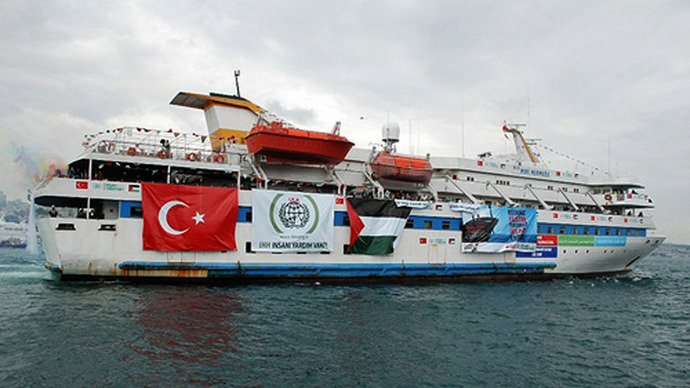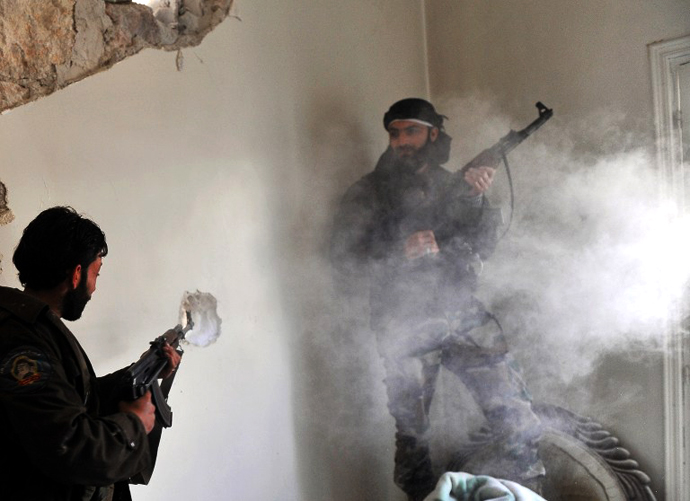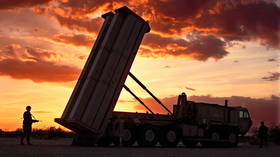What’s really behind Israel’s Gaza flotilla mea culpa?

In what looks like a rare diplomatic change of heart this week, Israeli leader Benjamin Netanyahu has issued an apology over Israel’s role in attacking a Turkish humanitarian flotilla that tried to break Israel’s humanitarian blockade of Gaza in 2010.
Turkish PM Recep Tayyip Erdogan has agreed to accept Israel’s
apology and to normalize relations between the two nations, ties
that abruptly broke down following the UN report in 2011 made
public the storming of the Gaza bound aid flotilla. Turkey has also
agreed to drop its criminal charges against Israeli military brass,
including those against former chief of staff Lt.-General Gabi
Ashkenazi.
A normalisation of relations between Israel and Turkey?
Nearly three years and a scathing UN report later, with nine
Turkish dead and bereaving families - many would ask, what took
Israel so long to respond, and why now?
In some ways this is unchartered territory, because seldom has
Israel ever reached out and offered a retraction for its sins of
the past. It’s certainly a positive move from a Turkish diplomatic
perspective.
The extremely rare apology by PM Benjamin Netanyahu has left some
surprised and many skeptics wondering what Israel might be
expecting in return for such a conciliatory announcement.
Israel’s international image has long been tarnished by its refusal
to engage in diplomatic talks, or observe dozens of UN resolutions
that have been passed in an attempt to bring it in line with
international norms.
Netanyahu described the Gaza Flotilla incident in 2010 as
“unintentional”, but some passengers aboard the ill-fated
Mavi Marmara are not convinced.
Former US Marine and humanitarian aid worker Ken O’Keefe was a
survivor of the Flotilla, and isn’t convinced of the Israeli
PM’s sincerity, saying “Insincere apologies offered and
accepted by corrupt governments is nothing more than theatre, it is
an insult to the memory of those martyred on the Mavi Marmara and
to the people of Gaza themselves.”

“I would certainly ask any sane people to consider if it were their brother, their father, their husband who was murdered, would an apology and money be sufficient for you?”
Quoting Israel’s own “eye for an eye” foreign policy doctrine of retaliation, and judging by Israel’s own past record following comparable incidents, if the shoe were on the other foot - with nine dead Israeli passengers, arguably this would have prompted a stern reaction in the form of either targeted assassinations, or a surgical airstrikes by Israel against Turkish assets, as a result of such a high-profile international incident.
If readers are in any doubt as to the plausibility of this scenario, consider the quid pro quo which followed Hezzbolah’s 2006 capture of only two Israeli soldiers, Eldad Regev and Udi Goldwasser. The result was a 33 day bombardment and military siege of Lebanon which left an estimated 1,191 Lebanese civilians dead, 4,409 injured and hundreds of thousands more internally and externally displaced – a huge black mark on Israel’s own record of wanton aggression against its neighbors.
This latest apparent olive branch by Tel Aviv to Ankara should also be underscored by Israel’s own much-maligned history, lacking any apologies or statements relating to the Palestinians themselves, perpetual victims of violence and oppression since Israel forcibly etched itself onto the region in 1948. O’Keefe sees this political reality reflected in the flotilla incident.
He explains, “They (flotilla victims) died because they refused to accept the unacceptable and what is unacceptable is the collective punishment of 1.6 million people in Gaza, over half of which are children. There is only one thing that will even come close to justice and that is a 100% end of the blockade and massive compensation to the traumatised, injured, grieving people of Gaza, as well as the complete rebuilding of Gaza.”
More than likely, this latest announcement was a result of US President Barrack Obama’s need for a win, albeit even a small one. It’s clear that this time, Obama had to return to Washington DC with something other than AIPAC photo-ops, and the normal obligatory public relations visit to Israel required by successive US Presidents.
More to the point however, is Israel’s cooperation with the US and British-led plans for the region.
Turkish and Israeli motives in Syria
Helping to patch-up relations with Turkey is one thing, but Obama’s political appearance in Israel and the recent patch up between Turkey and Israel cannot be looked at without taking into account the wider geopolitical chessboard.
Both countries have a stake in whatever comes from the present upheaval in Syria. From a US and NATO standpoint, it is highly unfavorable – and unlikely, that a NATO country like Turkey and US partner state Israel are not on the same page regarding the NATO Allies’ plans for regime change in Syria.
Prior to the Gaza Flotilla raid by Israel, IDF fighter jets were allowed to train in Turkish airspace for long-range missions, and would likely require the cooperation of Turkey for any future pre-emptive strike against Iran.

Although at odds over their security interests and Syria’s geopolitical alignment with Iran, both Israel and Syria have experienced relative détente since a UN brokered armistice was signed between the two countries in 1974. But recent Syrian rebel exploits in the Golan Height have jarred the balance of that situation, and Israel would likely make the first move should the UN’s UNIFIL peacekeeping force, or Damascus ever appear too weak to maintain their hold over the Golan security buffer zone. If the Bashar al Assad regime does fall in Syria, most analysts and pundits are in agreement that the country will descend into a sectarian and paramilitary chaos not unlike that witnessed following NATO last regime change operation in Libya – an outcome which would all but guarantee instability and more violence in the region for many years to come.
Although Netanyahu and Erdogan are said to have agreed on working together to improve the humanitarian situation in the Palestinian territories, they also mentioned they would cooperate to do the same in Syria.
In addition to absorbing thousands of Syria refugees from the conflict, Israel’s neighbor Jordan has already taken on the role of facilitator for the US, Britain and France’s proxy war in Syria, by allowing itself to be the main conduit for the transfer of weapons and training for the confab of Syrian Rebel militants and some al Qaeda-affiliated fighting groups – all backed by the NATO allies under the table, as it were. From a NATO standpoint, Israel will also need to be on the same page as Jordan.
In addition to all this, Israel has long coveted both land and natural resource interests in Syria’s Golan Heights region, which is water for Israel’s agricultural industry and also the recent announcement and pending license application for plans for Israel develop newly discovered oil in that area.
This latest maneuvering may appear like a bizarre U-turn by Israel, and not without some similarly bizarre comments from the Turkish side too. In an oddly worded communiqué, the Turkish PM Erdogan’s office also released a statement on Friday saying, "Erdogan told Binyamin Netanyahu that he valued the centuries-long strong friendship and cooperation between the Turkish and Jewish nations". Some might ask here- which centuries-old Jewish nations was he referring to? It’s probably just a political gaffe.
The statements, views and opinions expressed in this column are solely those of the author and do not necessarily represent those of RT.
The statements, views and opinions expressed in this column are solely those of the author and do not necessarily represent those of RT.













